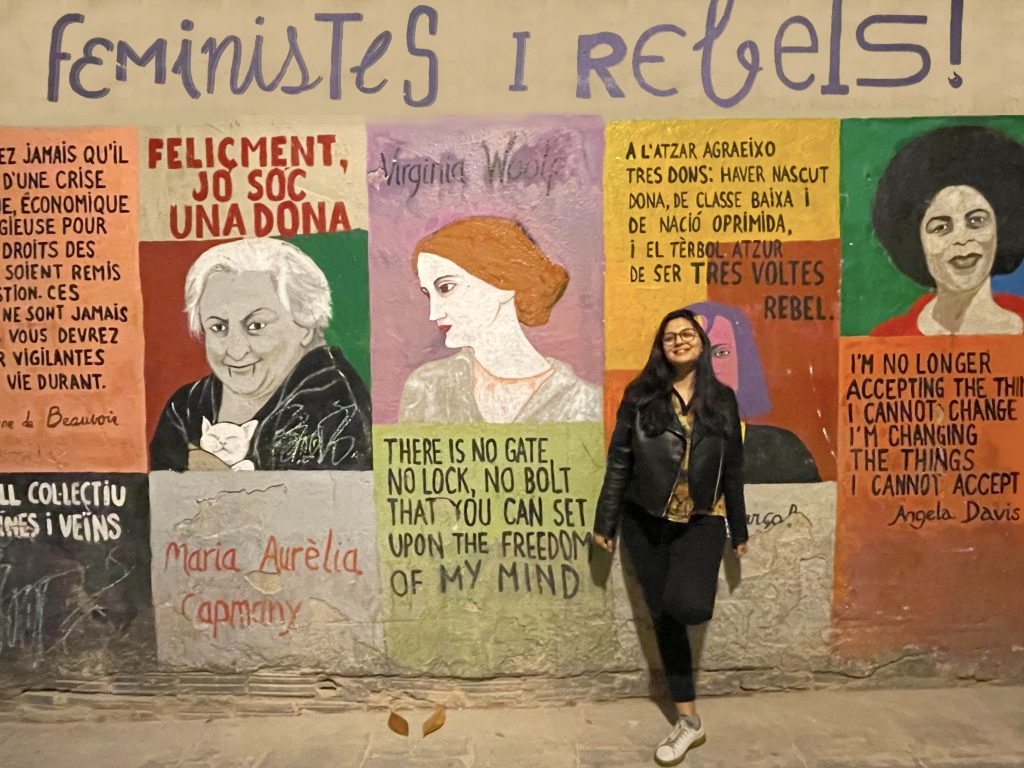Continuing our series of Alumni Interviews, we are happy to share the experience of Fizza Fatima after graduating from MICSEA.
What have you been working on since you’ve graduated from the program?
After graduating, I started working as a Consultant for UrbanEmerge, a UK-based sustainable development consultancy. I am fortunate to be contributing to a diverse range of projects including climate finance for early startups in LMICs, poverty alleviation in Pakistan, energy crisis in Europe, disaster risk reduction and early warning systems (EWS) in the Philippines. I provide research and consulting services for international donor organisations such as the UK Foreign Commonwealth and Development Office (FCDO), GIZ, UNIDO, FSD Africa, and national and municipal governments, civil society, and the private sector.
I was also recently selected for the EU-funded Break Fellowship for women entrepreneurs to support them on business growth and their personal leadership journey. My passion for climate justice motivated me to develop an initiative to support climate startups in the Global South to reorient climate action to indigenous and local innovation with international cooperation.
Is the work field in any way different from what you expected when you first graduated from the masters?
When I enrolled in the Master’s I wanted to pursue emergency architecture but during the course, I found many more topics that I gained interest in, including flow of aid and finance, economic resilience and digital infrastructure. I took my internship with UN-Habitat in Barcelona as an opportunity to explore these further, and later found myself in a unique position to get a flavour of a range of topics through my consulting work. My work is still very much aligned with the training I received during MICSEA. I deliver projects aligned with SDGs and sustainability frameworks for multilateral development partners and climate change policy institutions, some of which were introduced to me during the course of the Master’s.
What advice would you give to our current students in the masters program about their next steps?
The unique thing about the masters is the 1-week-module format, which helps students dip their toes into subjects they may have not dealt with before. At the same time, it can feel like an overload of information, so take things at your own pace. If you find something interesting, connect with the professor and follow up with any questions you may have. Most teachers are aware of the fast pace of the course and happy to provide more answers on email. The mandatory internship is also a great opportunity to test the knowledge you gained from the courses, so choose that well and start sending out applications early.
Once you graduated from the MICSEA what made you decide on the field of work you are in?
It was a mix of circumstances and conscious choice. There were little to no internship openings during Covid-19 and I was not hearing back on most applications I had sent out. I had planned to pursue a specialised internship on digital infrastructure and smart cities, but when that didn’t work out, I interned with the UN-Habitat Urban Resilience Hub in Barcelona. This helped me realise I was curious about other topics as well, so not having a specialised internship worked out for the best for me. At my current job with UrbanEmerge, I work on a variety of topics ranging from poverty reduction to circular economy to support for startups, and I feel MICSEA helped me prepare for this by opening new windows of knowledge and opportunity. When I enrolled in the program, I thought I knew what I was interested in and what I wanted to find answers for, but after I graduated, I ended up with even more questions and a whole new range of topics that I wanted to explore.


